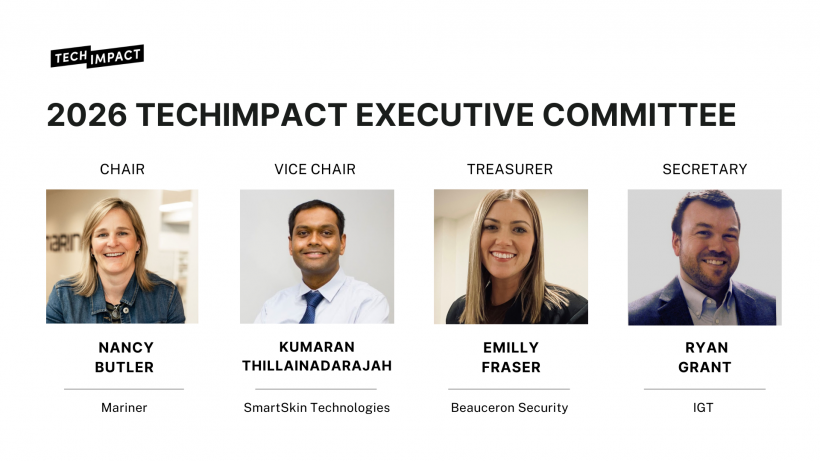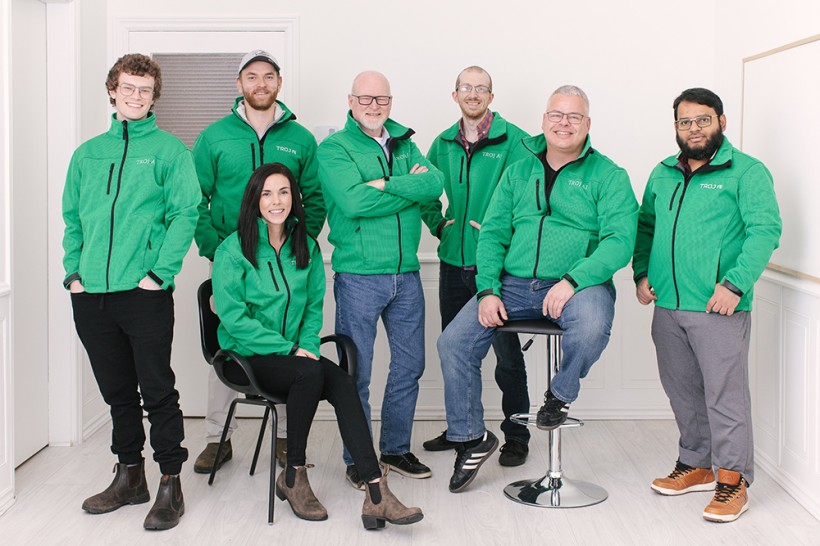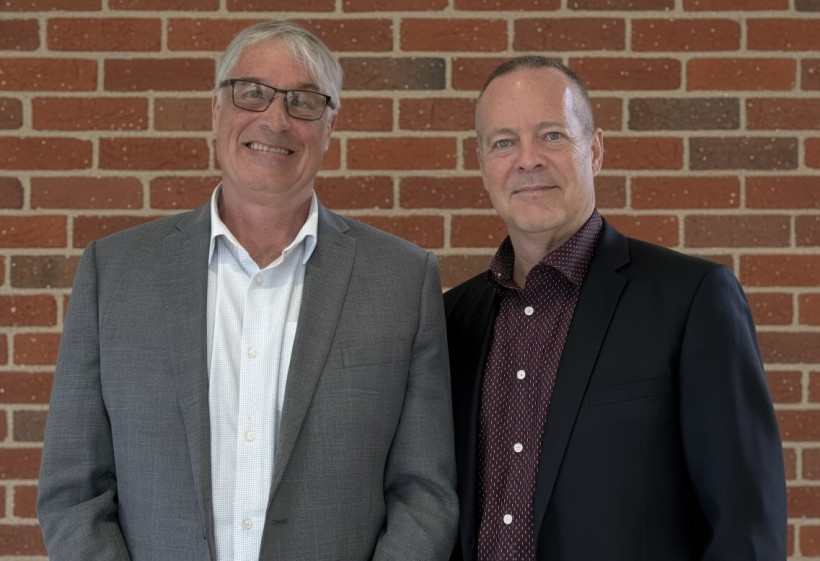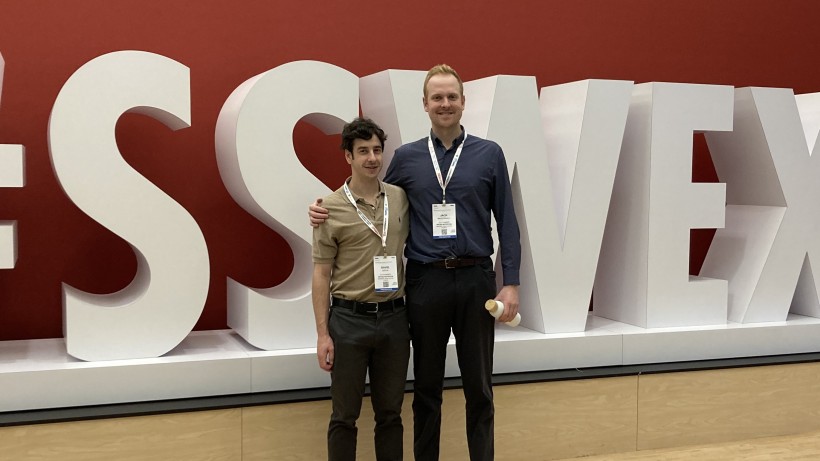TrojAI, which is developing a cybersecurity platform for artificial intelligence, has closed $750,000 of an equity funding round that its Co-Founders hope will reach $1 million.
The company now has investment from Concrete Ventures of Halifax, the New Brunswick Innovation Foundation and Techstars AI, as well as a few angel investors. Co-Founders James Stewart and Stephen Goddard are talking to a few more potential investors and hope to come up with a further $250,000 in funding.
The Saint John-based company has onboarded a few early adopters for its software, which helps to protect AI applications from cyber attacks. It expects to begin bringing in revenue in June, and if that goes well the team could try to raise more capital later this year.
“If we could close [the current round] at $1 million, the optics of doing that are good. Beyond the optics, there is the benefit for really lengthening the runway and allowing us to really ramp up our business development efforts,” said COO Goddard in an interview.
He added the company has also lined up as much as $250,000 in non-dilutive financing.
TrojAI aims to protect artificial intelligence platforms from attacks on training data and AI models, such as poisoning or embedded Trojan and evasion attacks. AI relies on data fed into a platform, such as a huge number of images of an object. These help the software recognize an image so it can react to what the object is doing.
Cyber-attackers can poison the data that is “training” the AI platform. TrojAI’s secure software-as-a-service product helps protect the data. In some cases, it improves the accuracy and performance of the model.
“Artificial intelligence is being used increasingly for mission-critical systems and decision-making in all kinds of sectors, but AI is vulnerable to adversarial attacks in ways that can’t be protected by traditional cybersecurity methods,” said Goddard in a video prepared by Techstars.
“There are unique challenges in protecting artificial intelligence and that’s because AI pipelines hang outside the traditional cybersecurity perimeter. We have a particular concern with AI and protecting it from adversarial hackers.”
TrojAI said last summer it had received a US$20,000 direct investment and US$100,000 in convertible debt on being accepted into the Techstars AI accelerator in Montreal. That amounted to about C$150,000 in investment, and NBIF joined the round after that. Concrete Ventures Partner Patrick Hankinson posted on social media Tuesday that his fund had also backed TrojAI.
The TrojAI leaders said working with Hankinson has been a real boon because he has methodically spelled out his expectations for the company, and introduced them to advanced methodology for onboarding customers.
Stewart, the company’s CEO, said the Techstars experience helped them immensely, especially in the number and quality of contacts it allowed them to make.
“They were amazing,” he said. “I continue to be shocked because I’ve seen the startup process from idea to exit and I’m still dumbfounded by how much I don’t know. So Techstars really was an education.”
Stewart previously led EhEye, a Saint John startup that developed video-recognition software for public security. EhEye was acquired by Patriot One Technologies of Toronto for more than $3.2 million in stock in 2018.
The TrojAI team hopes to soon bring on its third client for free trials. By June they expect to have 100 potential companies in their sales funnel and to be bringing in revenue.
“Once we onboard the early adopters, we will have a sense of market response to the product and if the feedback is positive we would certainly like to build out the team,” said Goddard.










